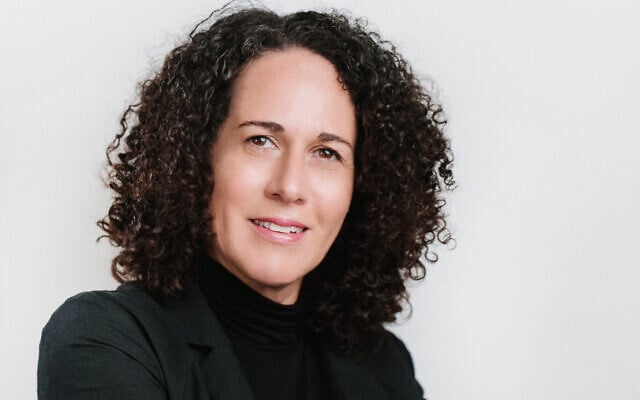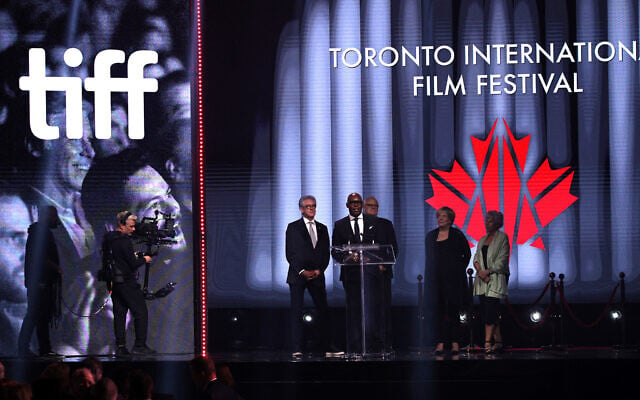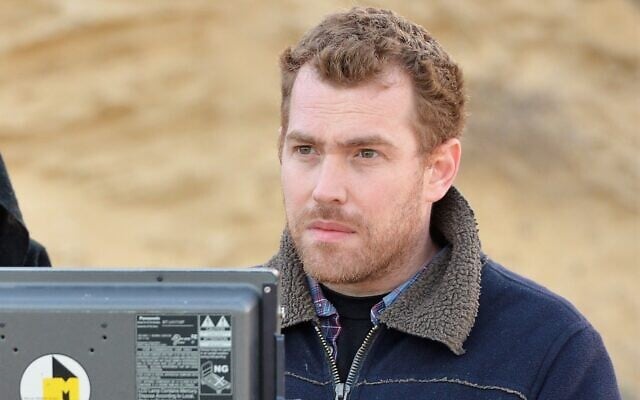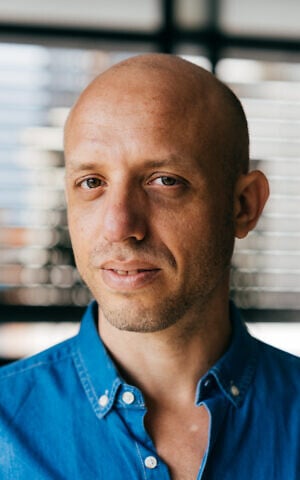

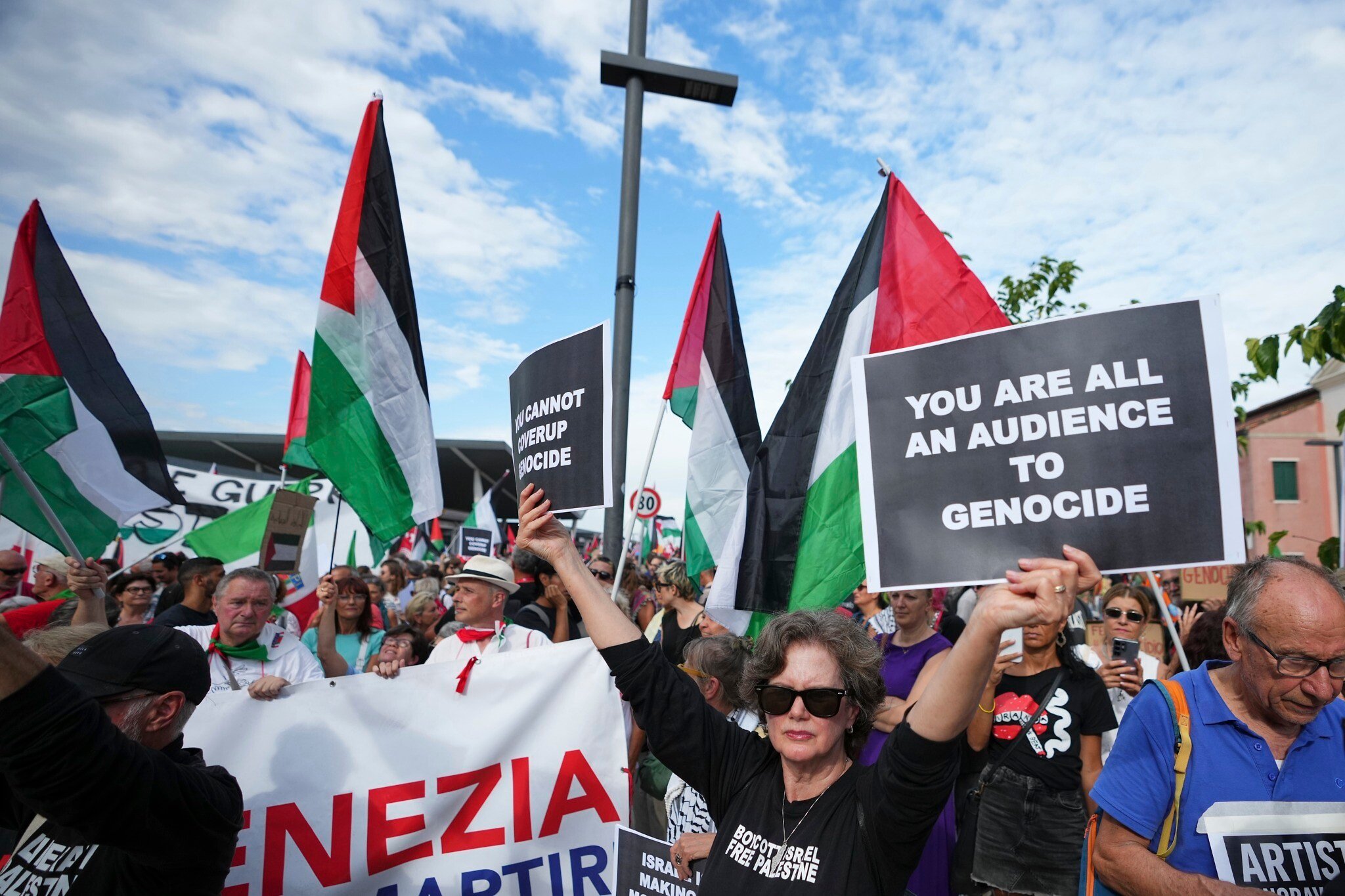
Pnina Halfon Lang has spent more than two decades promoting, marketing, and building collaborations for Israeli cinema abroad. From her office in a worn-down Tel Aviv building, the executive director of the nonprofit CoPro Foundation now senses a sharp shift in the industry.
“Business is not as usual,” she says.
Since Hamas’s bloody massacre of some 1,200 in Israel on October 7, 2023, sparked the ongoing war in Gaza, and as antisemitism has surged worldwide, Israeli filmmakers say they are facing a far colder reception than in years past. Invitations to international festivals have slowed, deals are harder to strike, and the political climate often overshadows artistic merit.
“It’s clear that it has to do with the war. And a lot of people, especially in the film business, which is much more left liberal-oriented, wouldn’t like to see anything Israeli,” says Dan Shadur, a documentarian and feature filmmaker.
Shmulik Duvdevani, a lecturer at Tel Aviv University, film critic, and writer for the Israeli Ynet news site, goes a step further.
“I don’t think it’s possible to separate art from politics. In the end, no one really cares what your specific opinion is as a creator if you’re coming from Israel today, because Israel is considered by many organizations a pariah state, a country to be boycotted,” Duvdevani says. “Nobody wants to get involved with Israeli cinema right now.”
And while “nobody” may be an exaggeration, many in the industry acknowledge it has become harder to share their stories.
On Monday, 1,800 actors and filmmakers vowed to boycott the Israeli film industry, with signatories including Mark Ruffalo, Emma Stone, Javier Bardem and Olivia Colman.
“Some organizations, even if they aren’t necessarily against [Israel] or taking a side, just don’t want this headache of having an Israeli film and a bunch of protesters or Boycott, Divestment, and Sanctions [BDS] movement people coming out and blowing up the screening,” says Halfon Lang.
Halfon Lang, who has years of experience traveling to and working with foreign film festivals, says criticism of Israel long predates October 7, but has intensified in its wake.
“There were many factors that led us to this point. But the large-scale propaganda movement that followed the attacks has made the shift in attitudes toward Israel feel especially evident in the film space,” she says.
At festivals abroad, Halfon Lang has seen Palestinian narratives welcomed while Israeli ones are sidelined.
The prestigious Toronto International Film Festival, for example, has historically shown five or six Israeli films. But in 2023, it showed only one, “Bad Boy,” and in 2024, it screened two, “Bliss” and “No Other Land,” which is about the destruction of 12 Palestinian villages by Israeli soldiers. The only other Israel-related film shown last year was “The Bibi Files,” an American documentary about corruption allegations against Prime Minister Benjamin Netanyahu.
This year, there is one Israeli film, director Or Sinai’s “Mama.” Festival organizers also stirred controversy when a Canadian documentary about the October 7 onslaught was initially pulled due to “copyright concerns” over bodycam footage of the carnage filmed by the terrorists perpetrating it. The festival later overturned the decision, and the world premiere of “The Road Between Us: The Ultimate Rescue” is set to screen on September 10.
Halfon Lang says that while festivals close doors or make it much more difficult for Israeli films, she has simultaneously seen festivals open their doors to Palestinian narratives.
At the Venice Film Festival last week, “The Voice of Hind Rajab,” a film about the alleged killing of a 5-year-old Palestinian girl by Israeli forces, was given a 23-minute standing ovation — along with the second-place Grand Jury award.
The festival, which ended on September 6, once celebrated Israeli cinema, with films such as Samuel Maoz’s “Lebanon” and Yuval Adler’s “Bethlehem” winning the Golden Lion in 2009 and the FEDEORA Award in 2013, respectively. Last year, Erez Tadmor’s Holocaust-themed drama “Soda” and the post-October 7 docudrama “Of Dogs and Men” by Dani Rosenberg — an international co-production with Italy’s public broadcaster, RAI — were Israel’s representatives at the event.
This year, no Israeli feature films were included in the lineup. The only Israeli presence came through two co-productions: “Eddie and I,” a virtual reality experience by Maya Shekel, and “Etty,” a TV miniseries by Hagai Levi.
Thousands marched in a pro-Palestinian, anti-Israel demonstration ahead of the festival, and over 1,500 people, including industry representatives, signed an open letter calling for actors Gal Gadot and Gerard Butler to be disinvited from the Venice event due to their support of the Jewish state.
The Times of Israel reached out to organizers of the Venice Film Festival, the Toronto International Film Festival, and the Cannes Film Festival for comment, but did not receive a response as of press time.
Spokespersons for CPH:DOX – Copenhagen International Documentary Festival told The Times of Israel that their festival “is guided by a commitment to artistic freedom and to presenting a broad spectrum of perspectives through documentary film,” and that its curatorial approach “has not changed.”
“The Israeli war on Gaza, like other global crises, naturally resonates in the international filmmaking community,” the Danish spokespeople said. “However, it has become even more relevant for us to show the reality of the Palestinian people, now that tens of thousands of civilians have been killed, with many human rights violations being documented… [and] leading Israeli politicians speaking openly of ethnic cleansing and denial of the right of the Palestinian people to live in a state of their own.”
The war is so dominant that it is now more difficult to find relevance in Israeli films that ignore the occupation and the life of Palestinians
The spokespeople said that there has not been any change of policy regarding Israeli films during their March festival, and that they “continue to welcome Israeli films in our program, as we do with films from all over the world.” However, they said, “the war is so devastating and dominant that it is now more difficult than before to find relevance in Israeli films that ignore the occupation and the life of Palestinians.”
Halfon Lang says that many in the film industry are missing out on nuance.
“There is a diverse complexity within the Israeli society. There are different opinions, different people, and the other way around. It’s not only victims here or occupiers there. I think that the film industry [should] create a wider narrative… and not narrow it down,” Halfon Lang says.
Rosenberg, whose “Of Dogs and Men” faced a petition against its screening at the 2024 Venice Film Festival, shares that view.
“Today, the world no longer accepts the dichotomy between Israelis who oppose or Israelis who represent the government. From their perspective, and maybe rightly so, the Israeli leadership is doing such terrible things that they simply aren’t interested in supporting any Israeli voice, period,” says Rosenberg.
Duvdevani agrees that the problem is less about individual films than about the climate surrounding them.
“It’s not just that all Israeli voices are being pooled together — it’s also that festival organizers seem intent on avoiding controversy altogether,” adds Duvdevani. “Creators are getting rejections. The answer won’t always be, ‘Because it’s Israel,’ or ‘Because of October 7,’ but there are rejections from festivals that in the past did accept Israeli films. Even if it’s not stated outright, it’s clear that this is the story.”
Before October 7, Israeli filmmakers were embraced abroad, says Rosenberg: Ari Folman’s 2008 animated drama “Waltz with Bashir” won a Golden Globe, Samuel Maoz’s “Foxtrot” won multiple prizes in 2017, including a Silver Lion in Venice, and “Synonyms” by Nadav Lapid won Berlin’s Golden Bear in 2019.
“Starting in the early 2000s, there was a wave of curiosity here. International cinema embraced Israeli cinema,” says Rosenberg. “Israelis were part of the conversation. There were good works, and they were wonderfully received worldwide. There were films that went as far as possible. But that has ended.”
Halfon Lang witnessed this downturn in May’s CoPro Market, an annual event where Israeli documentary projects are pitched to international executives. In past years, the market drew more than 300 meetings, she says. This year, CoPro managed 229 — a clear decline.
“There is a very strong hub of talented filmmakers and storytellers here in Israel. This is the main strength of our industry,” says Halfon Lang.
There is a very strong hub of talented filmmakers and storytellers here in Israel
But she notes that filmmaking depends on funding — and that funding is now more fraught than ever.
There are a number of public foundations that help local filmmakers fund their films, including the Israeli Film Fund (IFF), the Rabinovich Foundation for the Arts, and the Makor Foundation for Israeli Films.
“Many other countries around the world, especially in Europe, fund their films [with public funds]. People are independent, and this is the way films are being funded here in Israel,” says Halfon Lang.
Today, the IFF is the main organization that supports the production of domestic films. In 2024, it allocated a total of NIS 12.7 million (about $3.8 million) to various categories of films, according to its website (Hebrew link).
Debut films can receive up to NIS 1.5 million (roughly $450,000), whereas non-debut films are granted up to NIS 3.5 million ($1.05 million) since the competition for the latter budget is higher, according to an IFF investment schemes document.
While public funding is available, using it can sometimes lead to the film being boycotted abroad.
“You can be an Israeli filmmaker, but the moment you take money from the government, which is the only way to make films, you are marked,” says Shadur.
International film festivals tend to associate public funding with Israeli propaganda, especially when the film’s publicity materials contain a government logo, says Halfon Lang.
You can be an Israeli filmmaker, but the moment you take money from the government, which is the only way to make films, you are marked
“Sometimes I need to explain to an organization that the fact that someone gets funding from the IFF doesn’t mean that they make a film that is part of the policy or part of the state,” she says. “This is the way films are being funded here in Israel. I don’t think anyone can make films in Israel without this public money.”
Many of the films funded by the IFF are produced or co-produced by Arab Israelis who identify as Palestinian and contain messaging harshly critical of Israel’s government and policies — a phenomenon that has irked the current hardline government and stirred controversy at home and abroad.
The IFF’s website says funding is allocated to what is deemed to be the best cinematic work, while ideology is not a factor. While the IFF funds productions where commercial success is not guaranteed, the fund seeks to help bring to life local Israeli culture in features that can also achieve international success, according to the website.
In the aftermath of October 7, international partners have started pulling back from Israeli content, which has made both financing and distribution even harder.
“The [Israeli] film industry was hurt in terms of the fact that many people didn’t want to be affiliated with Israeli content, especially because there is a lot of financing from public money, film funds, networks, and public television. So many executives and professionals around the world found it hard to work with Israelis,” says Halfon Lang.
Still, she says she knows of projects trying this path anyway.
“Some projects and some filmmakers are trying to avoid taking public money just to be able to screen their films out of Israel, because otherwise they will be boycotted,” she says.
But Duvdevani warns that relying on foreign funding is no way to build a film industry.
“The moment foreign funds aren’t willing to collaborate with you or don’t feel that this is the right time, then you really can’t build an industry,” he says.
“The only way to bypass [the international rejection] is to not take money from Israel,” says Shadur. “But then, it’s very difficult to get funding for films, and it means that the film won’t be available in Israel.”
Locally funded Israeli films enjoy broadcasting privileges unavailable to films funded by foreign bodies, which would also likely prioritize distribution in their home territory.
Shadur says that renouncing the right to broadcast a work in Israel can increase its chances of screening abroad — though that is never a given.
Basically, we’re screwed, and I don’t see it changing anytime soon
“It doesn’t guarantee it will work. So, basically, we’re screwed, and I don’t see it changing anytime soon,” he says.
Despite the gloom, insiders insist they won’t stop creating.
“We’re in a very, very bad time for art in Israel, and for cinema in particular,” says Duvdevani. But he adds that “from crises, and this is true worldwide throughout history, art becomes more interesting, bolder, and more challenging. I hope that from this terrible crisis, Israeli cinema will only find new directions and strength to develop.”
Already, more than a dozen films about October 7 have been produced, including “October 8” by Wendy Sachs, “We Will Dance Again” by Yariv Mozer (which won a News and Documentary Emmy in June), and the upcoming “October 7th” by Fauda creators Lior Raz and Avi Issacharoff.
Rosenberg, who quickly brought the Hamas atrocities to the screen, says, “I don’t feel like I’m capable of doing anything else. Anything unrelated didn’t feel relevant — except talking about this.”
The world, justifiably, sees Israel today only in the context of the war
For him, the subject matter feels unavoidable.
“The world, justifiably, sees Israel today only in the context of the war,” he adds. “If they do watch Israeli films, they want ones that deal with the Israeli reality following October 7.”
Rosenberg has seen the ups and downs of the market but believes stories will endure: “I believe history teaches us that courage pays off in the long run. Do you want your works to be seen… 50, 100 years from now? Be courageous.”
This report was written as part of the Art of Journalism workshop at the Communications School, Reichman University.


